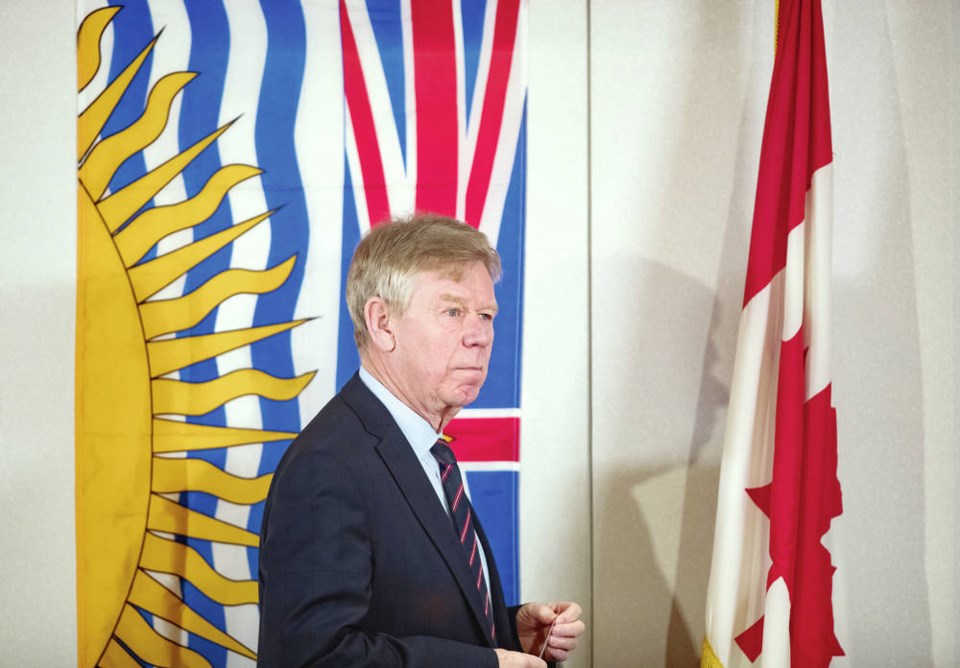Testimony at the Cullen Commission, which is examining money laundering at B.C. casinos, has turned up some troubling allegations.
The commission, under Associate Chief Justice of the B.C. Supreme Court Austin Cullen, was set up in May 2019. It followed a series of internal inquiries, one of them titled “Dirty Money: An Independent Review of Money Laundering in Lower Mainland Casinos.”
That report found numerous examples of illegal proceeds of crime being “washed” through casinos, then laundered through wire transfers or underground bankers, some of the latter located in China. This had been going on for years.
The question that arose in the wake of these reports was how could such a thing happen? Why hadn’t the RCMP, through its Integrated Illegal Gaming Enforcement Team, unearthed these activities?
Why hadn’t B.C.’s Gaming Policy and Enforcement Branch caught up with the crooks?
Where was the B.C. Lottery Corporation when we needed it?
The commission has produced an interim report, which the provincial Attorney General’s Ministry is withholding until staff have time to digest it.
However, most of the testimony before the commission is available online at the commission’s website (cullencommission.ca). If that testimony is accurate, it is evident that oversight bodies failed miserably in their duties.
At best this was due to political indifference on the part of the provincial government. More likely it was all about money grubbing.
The first allegation is that the RCMP team was deliberately stripped of resources as a money-saving scheme.
Fred Pinnock, who headed the team, told the commission that staff positions were kept vacant to such a degree that he never had time to enter B.C.’s largest casino, Richmond’s River Rock Casino and Resort, where most of the laundering was going on.
He spoke of a poor to non-existent working relationship between his team and the province’s Gaming Branch.
And he noted that his team was shut down altogether in 2009 under a directive from Rich Coleman, then the province’s solicitor general.
Clearly, the RCMP team was hamstrung from the start, and this played a role in the failure to detect a massive money laundering scheme right under its eyes.
The second allegation is that huge sums of money were being gambled in quantities that should have alerted both casino security, and the B.C. Lottery Corporation, which oversees casinos.
During a seven-day period, one individual bought chips worth $1.8 million, largely in small bills, at the River Rock Casino.
And John Karlovcec, former director of anti-money laundering at lottery corporation, admitted under questioning that the casino hadn’t reported two cash buy-ins of $450,000, all in $20 bills.
He further noted that when he became aware of these suspicious transactions, he did not direct the casino to refuse the cash, adding, “I recognize we do not want to jeopardize revenue.”
The third allegation is that Fred Pinnock advised MLA Naomi Yamamoto, who later became his wife, to raise money laundering concerns with Rich Coleman. He testified that when she did so, Coleman was “brutal, dismissive, and embarrassing.”
This is relevant because Pinnock also testified that he was told by Kash Heed, who subsequently replaced Coleman as solicitor general, that the government knew about organized crime laundering cash through casinos, but did nothing.
Pinnock told the commission: “He (Heed) said to me, in effect, ‘That is what’s going on Fred, but I can’t say that publicly; you know it’s all about the money.’ ”
And Pinnock went on to say Heed “did refer to Mr. Coleman as being largely responsible for this, as well as senior Mounties, who were complicit. The context was that it was a game being played by senior police officers who were, I think the term he used was, ‘puppets for Coleman’.”
These are staggering allegations, which if true, and it must be emphasized that’s all they are at this stage — allegations — portray a complete and total failure on the part of every oversight body to do its job.
Indeed, more than that, it appears the desire within government circles to maximize gaming revenue overcame any sense of responsibility to combat organized crime.
We’ll see, when the commission’s interim report is made public, how many of these allegations stand up to scrutiny.
But if they do, dereliction of duty is the least serious charge that should be made.



